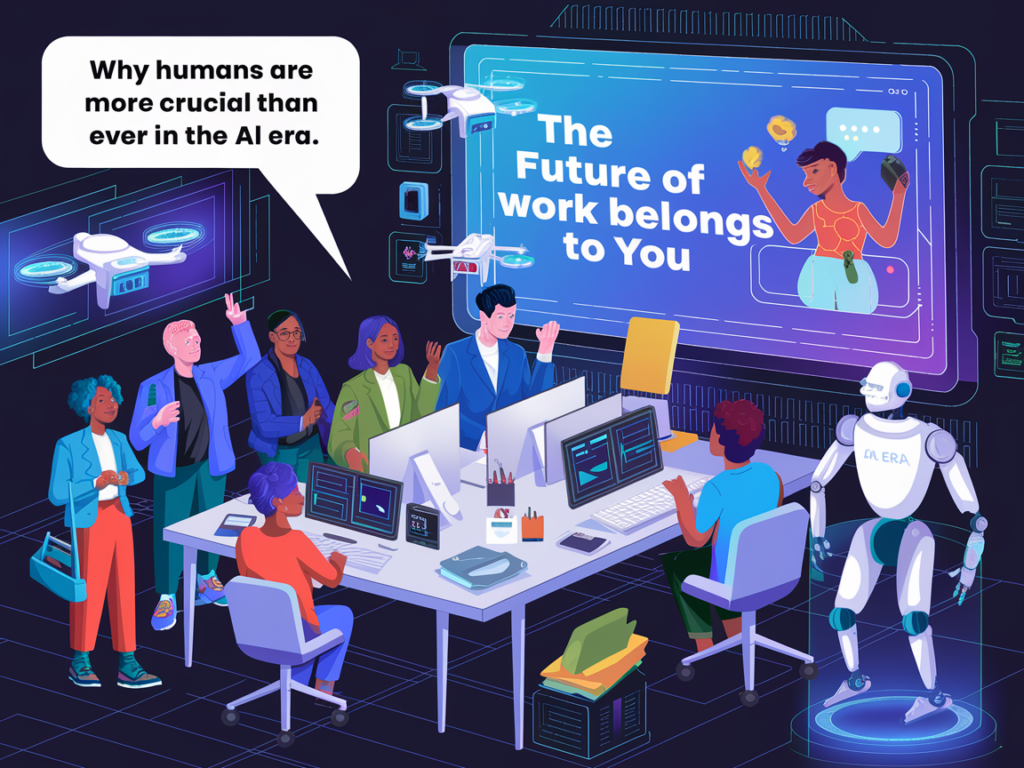At a time of rapid technological change, you as an entrepreneur or manager are faced with a crucial question: How can you lead your team through the digital transformation and not only survive, but also grow personally and professionally?
The challenge: people and technology in imbalance
Do you know this? While investments are being made in digitalization, employee development often falls by the wayside.
This short-term thinking leads to noticeable bottlenecks:
- Know-how is lost; the "skills shortage" strikes.
- Increasing complexity and a lack of time are paralyzing day-to-day business.
- Innovation leads to frictional losses.
At the same time, new studies by McKinsey show that up to 30% of all current working hours could be replaced by automation by 2030.
So is relief in sight?
This does not apply automatically, but primarily to those companies that find a harmonious mix: AI takes over repetitive tasksdata analysis and standard processes, while employees concentrate on the, what people do best - creative problem solving, interpersonal communication and strategic decisions.
A lot can be achieved with this approach:
- Acceptance of new technologies increases as everyone involved sees a direct benefit.
- People gain valuable time for innovation and personal relationships, which is also felt by customers.
- Productivity per employee increases without overloading.
This is also reflected in the figures. According to McKinsey, companies that place people at the center of their AI strategy achieve a 300% higher sales performance (!) per employee compared to the industry average.
The key is not to see humans and AI as opposites, but as ideal complements.
The following steps will take you there:
- Investing in people, not just in technology:
Develop employees' understanding of AI just as much as the technology itself. A workshop with the management team is often a good place to start. - Identify the right human-AI interfaces:
Find out where your employees can benefit most from AI support. Office tasks that occur in all SMEs are a good place to start. - Expand flexibility:
Develop models that take both technological and human developments into account. Sharing ideas with other SMEs on an equal footing is particularly helpful here. - Developing employees instead of replacing them:
Recognize the skills that already exist in your team and develop them further. Train human skills such as communication or critical thinking. - Integrating AI expertise into everyday working life:
Make the use of AI tools a matter of course. Let employees discover new applications that improve their workplace.
For SMEs in Liechtenstein and Switzerland in particular, a people-centric approach offers enormous opportunities to overcome bottlenecks and at the same time take advantage of personal proximity.
The future of work belongs neither to AI alone nor to humans alone - it belongs to the perfect interplay between the two.
P.S.: Would you like to read more about this topic?
👉 Download the new McKinsey study here:



